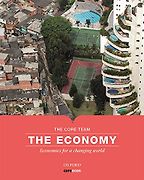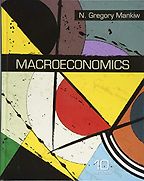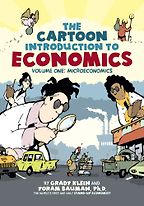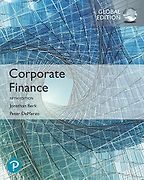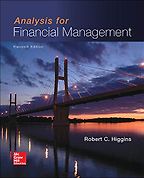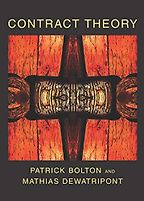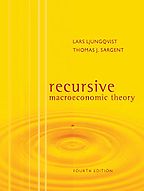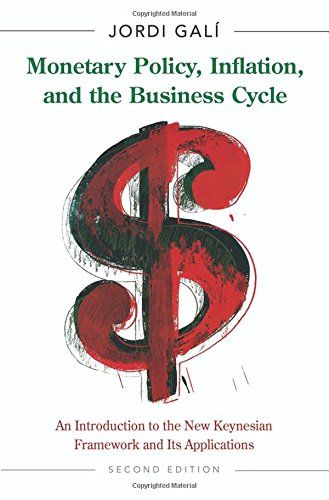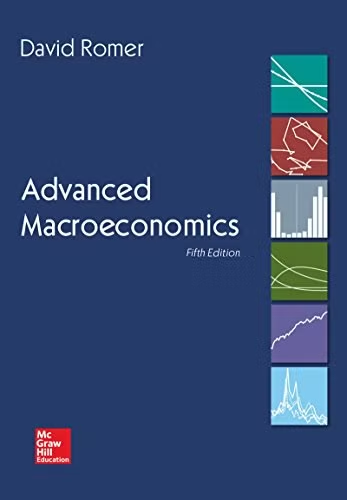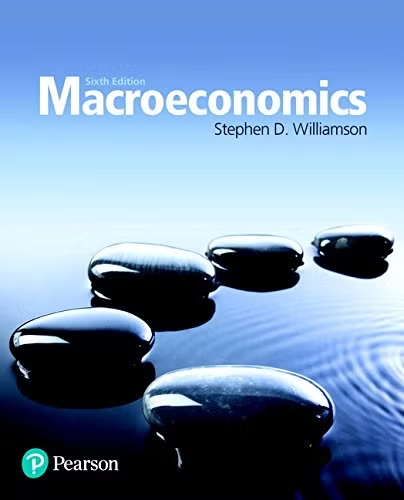Economics Textbooks
Last updated: July 31, 2023
Core Economics
by Core Economics Team
Which is the best introductory economics textbook? When we asked Cambridge professor Diane Coyle for her opinion a while back, she recommended Core Economics. Not only does it cover issues, like inequality, that people really care about, but, even better, you can download the ebook for free. You can use the materials to start teaching yourself economics and see if it's the subject for you.
The Core project is led by UCL economics professor Wendy Carlin.
“Greg Mankiw is very good for entry-level type textbooks, whether they’re called ‘introduction’ to macroeconomics or ‘intermediate’ macroeconomics. They all suit, more or less, an entry-level knowledge of economics. Some have more, some have less analytical detail. This one is probably the most general in terms of its title, it’s just called Macroeconomics and, in my opinion, it’s the one that can reach the widest audience. That’s why I chose this one. He’s a great writer. It’s a classic and generation after generation of economists have gone through it. You cannot list five books on economics for undergraduates and not include this book. It would be like listing the five top guitarists from the 1960s and not including Jimi Hendrix.” Read more...
The Best Macroeconomics Textbooks
Raffaele Rossi, Economist
“This is by Yoram Bauman, who is perhaps better known as the stand-up economist. He sprang to fame because of this lecture – you can see it on YouTube – which was a stand-up comedy routine, based on a parody of one of the most famous economics textbooks, Greg Mankiw’s Principles of Economics. Bauman has a PhD in economics, so he knows a lot of economics, and there’s actually quite a lot of wisdom woven into the comedy routine, but he just lays into economics. Then he decided that the next thing he wanted to do was write this cartoon introduction to economics. And, just to be clear, this is a textbook. It’s not a comic book with some economic messages, it’s a textbook in the form of a cartoon. But it’s quite sophisticated and it’s very nicely done…For anybody who is genuinely interested in economics, who really wants to learn the jargon, or anyone who is starting out studying an economics course, this is just a brilliant source. It really is rigorous, but it’s also a lot of fun to read.” Read more...
Tim Harford, Economist
Corporate Finance
by Jonathan Berk & Peter DeMarzo
Corporate Finance Textbook
Corporate Finance by Jonathan Berk and Peter DeMarzo (both professors at Stanford's Graduate School of Business) is an excellent corporate finance textbook, which explains everything you need to know clearly and well. If you've thought about business and have some basic maths, you should have no problem following it. Corporate finance is about the capital structure and financing side of a business: how to raise money and what instruments to use. Clearly, you need to adapt your financing to what kind of business it is. For example, if you work for a risky startup with no cashflow, issuing a lot of debt is not a good idea. Corporate finance is also about valuation, and whether a project or deal will add or subtract from shareholder value. Risk management (e.g. of changes in interest or exchange rates) is also essential and one of the many topics covered in this very nicely done book.
“This is the textbook I use in my PhD macro courses. In fact, it’s used in almost all of the major PhD programmes in the US right now – any respectable programme most likely uses this book. It’s a book of tools and techniques to solve what are called recursive macroeconomic models. Modern macroeconomics uses DSGE models – dynamic stochastic general equilibrium models. That’s a bit of a mouthful, but all dynamic means is that it’s a model which explains how things move through time. So it explains what GDP will be today, tomorrow, the next day and the day after that, and how it might change if the government does different things or if certain things happen in the economy. It’s really a model of how the economy transitions from one point to the next – how it goes into recessions et cetera. Those models are extraordinarily difficult to solve. What this book shows us – and this is the recursive part in the title – is a way of breaking down this really hard problem into little tiny pieces. You can actually solve a much simpler problem when you only have to look at how the economy moves from today to tomorrow. I don’t have to look at how it moves from tomorrow to the next day and all the way out as far as I can see. We can break down these really hard problems into a recursion between today and tomorrow.” Read more...
The best books on Econometrics
Mark Thoma, Economist
“This is a book that I would suggest mostly for people starting a PhD. It’s very technical. It talks about monetary economics and inflation in a very technical way, but of the books of that kind it’s the easiest and gives you an overview of the vision of the so-called New Keynesian model. Jordi is an amazing writer. There is a lot of intuition, despite the use of a lot of maths. It helps you to understand, first of all, how inflation is created in a mathematical model but, most importantly, why we care about it. Jordi says that, in some sense, we care about inflation because of this feedback effect on output—employment and inflation are strictly linked together. A key element of the model economy in the book is price rigidity, firms do not immediately adjust prices. Now, if firms do not adjust prices, if they experience an increase or a decrease in the overall price level, then they need to adjust production in the short run. So if you have higher inflation, then you’re going to have some effect on the output through this mechanism. The book describes this mechanism, and then it describes the optimal monetary policy. The book discusses the connection between inflation and the real side of the economy, and why the central bank should care about inflation. Jordi also explains the conditions under which stabilizing inflation and stabilizing output and employment, in the short run, is exactly the same. This result is known as the ‘divine coincidence.'” Read more...
Federica Romei, Economist
“Romer is very advanced undergraduate level or early graduate. If you study macroeconomics at an advanced level, you will come across this book. If you want to have a comprehensive and broad perspective of what macroeconomic theory is today, in the broadest and most concise from, this is the book.” Read more...
The Best Macroeconomics Textbooks
Raffaele Rossi, Economist
“I use it for my second-year macroeconomic undergraduate courses. We have two streams in our economics degree, and I teach on the more technical one, the BSc in economics. The book is more technical, not only from a mathematical point of view, but also from a logical point of view. The intuitions are elaborated in detail and very precise.” Read more...
The Best Macroeconomics Textbooks
Raffaele Rossi, Economist
-

1
Macroeconomics
by Greg Mankiw -

2
Macroeconomics
by Stephen Williamson -

3
Advanced Macroeconomics
by David Romer -

4
Monetary Policy, Inflation, and the Business Cycle: An Introduction to the New Keynesian Framework and its Applications
by Jordi Gali -

5
Recursive Macroeconomic Theory
by Lars Ljungqvist & Thomas J. Sargent
The Best Macroeconomics Textbooks, recommended by Raffaele Rossi
The Best Macroeconomics Textbooks, recommended by Raffaele Rossi
In its study of the broader economy, macroeconomics is a vital tool for understanding the world around us, offering insights into issues that affect us all, like inflation and unemployment. Which textbooks to read to learn more about it? Here, Raffaele Rossi, Senior Lecturer at the University of Manchester, recommends his top macroeconomics textbooks, starting with entry-level books aimed at undergraduates all the way through to the tough tomes you’ll need to plough through if you’re doing a doctorate and want to work at the frontier of the discipline.
